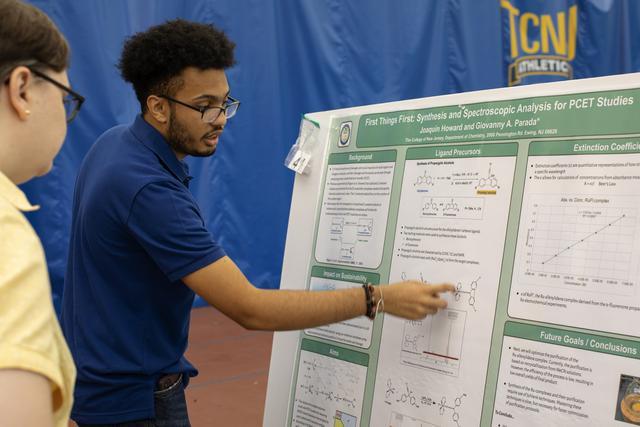
The College of New Jersey has received a new Carnegie Classification for “Research Colleges and Universities,” a designation awarded by the American Council on Education and the Carnegie Foundation for the Advancement of Teaching.
To earn this designation, which is new to the Carnegie framework, an institution must devote at least $2.5 million to research and development expenditures from external and internal funding in an average year. Spending data taken from the Higher Education Research and Development survey indicated TCNJ expended an average of $2,672,333 for research from 2021 to 2023.
“This classification is a testament to the well-defined teacher-scholar model in place at TCNJ, and the investment the college has made through direct support for faculty and students with programs like SOSA and MUSE,” said Amy Cuhel-Schuckers, director of grants and sponsored research at TCNJ.
Abby O’Connor, professor of chemistry and president of the TCNJ faculty senate, sees this reclassification as a strong factor in retaining and attracting students who are interested in a variety of research opportunities.
“We have great retention and student success metrics because of our authentic research experiences for students,” she said. “Whether that’s in a chemistry research lab like mine or a global engagement program where students and faculty are traveling abroad and doing research, or the generation of a creative piece from the music department.”
The college’s new classification also will be attractive to faculty looking to engage directly with students on research.
“As a faculty member, you can come to TCNJ and conduct meaningful research, starting from the bottom up — developing an idea, testing hypotheses, generating results, presenting them at conferences, and publishing them oftentimes with students,” O’Connor said. “This reclassification will help get TCNJ’s name in front of a broader community to see the impact of the research we do here.”
The Carnegie Classification is the leading framework for recognizing and describing institutional diversity in U.S. higher education. The framework was first published in 1973 and is updated every three years to reflect changes among colleges and universities.
— Luke Sacks
